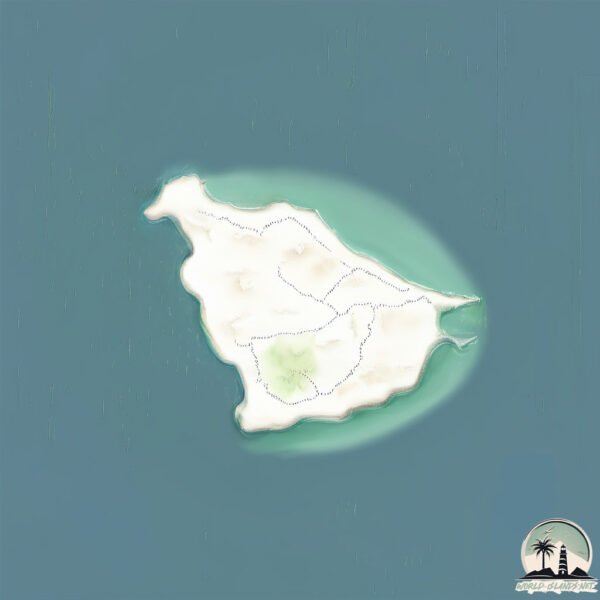Lesser Tunb

Welcome to Lesser Tunb, a Dry island in the Persian Gulf, part of the majestic Indian Ocean. This guide offers a comprehensive overview of what makes Lesser Tunb unique – from its geography and climate to its population, infrastructure, and beyond. Dive into the details:
- Geography and Size: Explore the island’s size and location.
- Climate and Weather: Weather patterns and temperature.
- Topography and Nature: Uncover the natural wonders of the island.
- Infrastructure and Travelling: Insights on reaching, staying, and making the most of your visit.
- News and Headlines: Latest News.
Geography and size of Lesser Tunb
Size: 1.423 km²
Coastline: 5.6 km
Ocean: Indian Ocean
Sea: Persian Gulf
Continent: Asia
Lesser Tunb is a Small Island spanning 1.4 km² with a coastline of 5.6 km.
Archipel: –
Tectonic Plate: Arabia – A major tectonic plate covering the Arabian Peninsula and parts of the Middle East. The plate is primarily continental and known for its collision with the Eurasian Plate, leading to the uplift of the Zagros Mountains.
The geographic heart of the island is pinpointed at these coordinates:
Latitude: 26.24132076 / Longitude: 55.14696533
Climate and weather of Lesser Tunb
Climate Zone: Dry
Climate Details: Hot Deserts Climate
Temperature: Hot
Climate Characteristics: Dominated by extremely hot temperatures, this climate is marked by minimal rainfall and barren landscapes. Nights often experience drastic temperature drops.
Topography and nature of Lesser Tunb
Timezone: UTC+04:00
Timezone places: Asia/Dubai
Max. Elevation: 5 m
Mean Elevation: 3 m
Vegetation: Sparse Vegetation
Tree Coverage: 36%
The mean elevation is 3 m. The highest elevation on the island reaches approximately 5 meters above sea level. The island is characterized by Plains: Flat, low-lying lands characterized by a maximum elevation of up to 200 meters. On islands, plains are typically coastal lowlands or central flat areas.
Dominating Vegetation: Sparse Vegetation
These regions have limited plant growth, typically due to extreme conditions like aridity or poor soils. Vegetation is scattered and consists of hardy plant species. Lesser Tunb has a tree cover of 36 %.
Vegetation: 2 vegetation zones – Low Diversity Island
Islands with two distinct vegetation zones offer slightly more ecological variety. These zones could be due to differences in elevation, moisture, or other environmental factors. While still limited in biodiversity, these islands may offer a contrast between the two zones, such as a coastline with mangroves and an inland area with grassland.
Infrastructure and Travelling to Lesser Tunb
Does the island have a public airport? no.
There is no public and scheduled airport on Lesser Tunb. The nearest airport is Abu Musa Island Airport, located 42 km away.
Does the island have a major port? no.
There are no major ports on Lesser Tunb. The closest major port is JAZIREH-YE SIRRI, approximately 76 km away.
The mean population of Lesser Tunb is 129 per km². Lesser Tunb is Moderately Inhabited. The island belongs to Iran.
Continuing your journey, Greater Tunb is the next notable island, situated merely km away.
Geopolitical Hotspots: The Battle for Abu Musa and the Tunb Islands 🌍#geopolitics #geograpgy #iran



Iran is classified as Emerging region: G20: Group of Twenty – Major economies comprising both developed and emerging countries, representing the world’s largest economies. The level of income is Upper middle income.
News – Latest Updates and Headlines from Lesser Tunb
Stay informed with the most recent news and important headlines from Lesser Tunb. Here’s a roundup of the latest developments.
Please note: The data used here has been primarily extracted from satellite readings. Deviations from exact values may occur, particularly regarding the height of elevations and population density. Land area and coastline measurements refer to average values at mean high tide.
